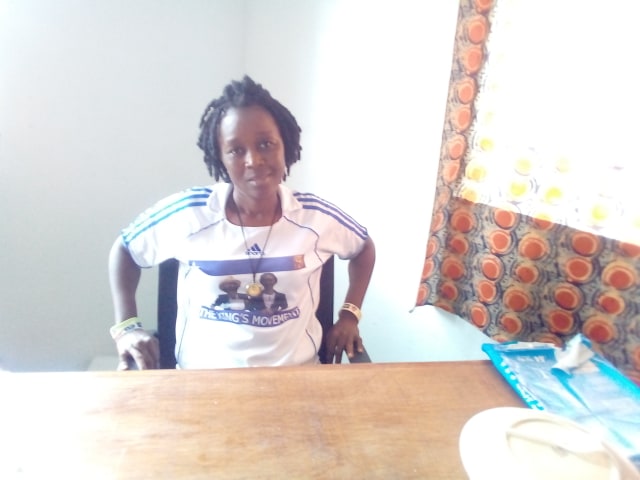PHOTO: One of the females venturing into the race in Montserrado County, Israel King
By Garmah Never Lomo, garmahlomo@gmail.com
Liberian women who aspire to leading political roles have a steep, uphill battle to overcome. And that includes coming up with personal money to finance their elections campaign while continuing to receive insults from their male competition.
This is the case of at least two Independent female candidates who spoke about these challenges, less than a month from the scheduled 2020 Special Senatorial Elections.
Israel E. King, popularly known as “Ann Gennie,” who runs on behalf of Montserrado county, and Botoe Kanneh vying for Gbarpolu county, both stated that running as an Independent candidate, without a major political party to back them up, also means that they have to self-sponsor their campaign. When their personal money isn’t sufficient, they have to reach out to family, friends, and other donors.

women brainstorm to increase political participation
Independent candidate King said that she started her election campaign with approximately $11,000 USD ($1.8 million LRD) which she had in savings as her own money. She expects that by the end of the elections she may end up spending a total of approximately $30,000 USD ($4.8 million LRD). Speaking from her official office at Old Road, she indicated that her primary source of finance for the senatorial bid is heavily reliant on her friends and relatives from abroad.
About $5,000 USD ($800,000 LRD) of the donated money was spent on campaign materials. She also spent a significant amount of money on gasoline for vehicles and motorbikes for transportation and her campaign received two pickup trucks and a bus from family members and friends. The popular Liberian actress who produced a movie known as “Up River” further disclosed that four donors gifted her campaign with motorbikes to be used for her campaign activities.
The situation is not much different for Botoe Kanneh, and Independent female who runs for a seat in the Senate on behalf of the Gbarpolu county. She had budgeted $100,000 USD ($16 million LRD) for her campaign activities, and of that money she spent $50,000 USD, or half, on humanitarian assistance and donations in the Gbarpolu county. Kanneh also had to self-finance and fundraise and stated that the sources for the money are contribution from businesses and family members. She also bought a Toyota Prado and rented four commercial motorbikes to ensure transportation throughout the campaign.
Kanneh, a successful professional who has been in the business industry for the past twenty years, contested for a seat in the House of Representatives from District #3 Gbarpolu county in 2017, but lost. Currently she runs against three other male candidates for the same seat. However, aside from the money challenge, she said she is also confronted with insults and other unprofessional behavior from her opponents, but that she won’t be distracted from her mission.
According to NEC data from the 2017 elections, Gbarpolu county had the highest percentage of registered women voters, which was 56.6%. However, only 46.1% of all registered voters cast a ballot in 2017 in Gbarpolu. This is less than one out of every two registered voters exercised their constitutional right. Voter apathy -in other words, people’s lack of enthusiasm or willingness to go vote-, may also have contributed to Kanneh’s loss.
Botoe Kanneh is the only female candidate from Gbarpolu. If all women registered to vote were to cast their ballot for Kanneh, she would have an easy win. NEC Provisional List of Aspirants for the 2020 Special Senatorial Elections, published on September 23, shows that there are a total of 118 candidates for the Senate seats, but only 20 are females, representing just 17% of the total number, yet 49% of all registered voters in Liberia are women.
The New Elections Law of Liberia approved in 1986 and amended in 2003, 2004 and 2014, section 7.3. (1)(c), states that elections expenses for a senatorial race “shall not be incurred or authorized by a candidate and or party […] in excess of Six Hundred Thousand United States dollars (US$600,000.00).” This means that a senatorial candidate is allowed to spend as much as $600.000 USD, but not more than that.

